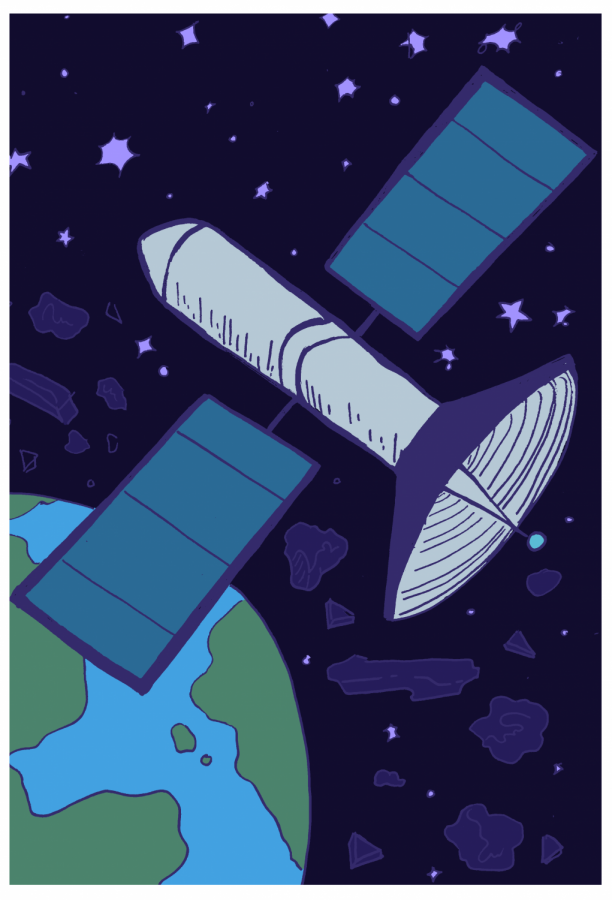UT associate professor Moriba Jah named chief advisor of Apple co-founder’s space preservation company
December 15, 2021
Editor’s Note: This article first appeared as part of the November 9 flipbook.
A UT professor aims to achieve a safer, environmentally-conscious space after being appointed as chief scientific advisor for a company working to preserve space.
Privateer, created by Apple co-founder Steve Wozniak, appointed Moriba Jah, an associate professor of aerospace engineering, as chief scientific advisor in October. In this role, Jah said he will help bring the science and analytics collected by other researchers in the company together to make informed decisions regarding space traffic, pollution, accessibility and potentially future space legislation.
“The main thing people need to understand is that Privateer is mostly a knowledge creation, solutions creation company,” Jah said. “It’s all about maximizing decision intelligence at the speed of relevance to different stakeholders with the goal to make space safer, more secure and more sustainable.”
Privateer, located in Kula, Hawaii, released a video in September stating its goal of keeping space safe and accessible for all humankind. Jah said one of Privateer’s first projects is to launch its first satellite, “Pono 1,” which is expected to launch on Feb. 11, 2022 with sensors attached to gather data of waste floating in space.
“If we want to be able to facilitate decision making, we need data,” Jah said. “Having our own set of observations of near earth space and the orbital ecosystem will augment our own information feeds from other sources and helps confirm or refute hypotheses and support decisions.”
Jah said managing the problems in space could prevent collisions, preserve space as an additional ecosystem and prevent misinterpretations or miscommunications between different countries regarding the early use of space.
“We have difficulty in predicting where things are going to be over the next few hours, days, weeks … and we have a growing number of operational satellites from different companies trying to do everything from Earth observation for climate change monitoring to providing global internet,” Jah said. “Orbital space has specific highways that are getting more crowded, so there’s a need for improved decision making to keep things safer.”
Jah, who previously launched the Eyes on the Sky Project, an interactive virtual reality experience on space environmentalism, and helped develop the Space Sustainability Rating, said he gained his passion for space sustainability when he first began space environmentalism research in Maui.
“That’s when I discovered that there was all this garbage in Earth’s orbit as a consequence of human behavior and human activity,” Jah said. “I think juxtaposed with seeing a lot of ecological unsustainability on Maui, you know, single use plastics maximized by the hotel industry and landfills on Maui … it made me feel broken inside.”
Jah said that he hopes Privateer can make space safer, more secure and more sustainable for everyone.
“Space being added and recognized by Privateer as one of Earth’s ecosystems (shows) that there’s real environmental impacts in terms of the carrying capacity of given orbits, or … a space traffic footprint,“ Jah said. “In terms of trackable stuff we’re talking about, upwards of 30,000 pieces ranging in size from the cell phone to the space station. The untrackable stuff we hypothesize is, upwards of a million pieces that are pretty small, and hard to detect … but still can be lethal to other satellites.”












